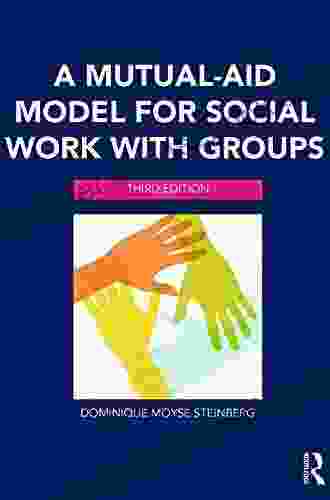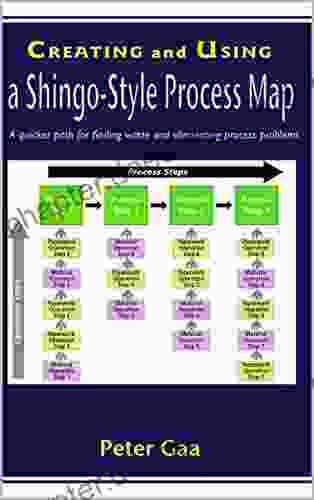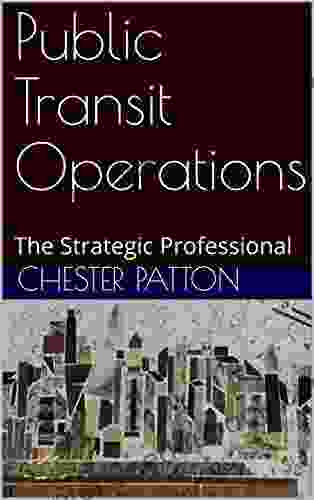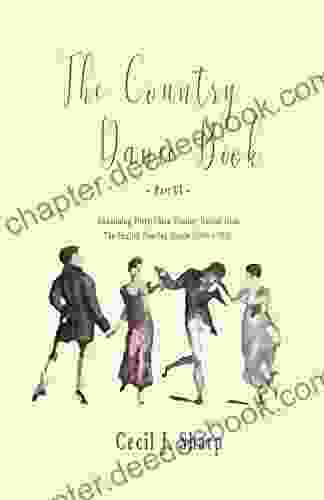Exploring the Mutual Aid Model: Empowering Individuals and Communities in Social Work Practice

4.1 out of 5
| Language | : | English |
| File size | : | 937 KB |
| Text-to-Speech | : | Enabled |
| Screen Reader | : | Supported |
| Enhanced typesetting | : | Enabled |
| Word Wise | : | Enabled |
| Print length | : | 282 pages |
| Paperback | : | 1 pages |
| Item Weight | : | 1.25 pounds |
| Dimensions | : | 8.51 x 0.5 x 11.04 inches |
In the ever-evolving field of social work, the need for empowering approaches that foster resilience, community connections, and social justice has never been greater. The Mutual Aid Model, a transformative approach to social work practice, offers a promising framework to address these pressing challenges. Rooted in the belief that individuals and communities possess untapped potential and resources, this model encourages a shift from traditional service provision to fostering reciprocal support networks that promote self-reliance and collective action.
Key Principles of the Mutual Aid Model
- Empowerment through Participation: Individuals are active participants in shaping their own well-being and the well-being of their community, fostering self-determination and reducing dependency on external support systems.
- Strength-based Approach: Focuses on identifying and building upon the strengths and assets of individuals and communities, promoting resilience and self-sufficiency.
- Community Building: Facilitates the creation of strong, supportive community connections that provide a sense of belonging, social capital, and a platform for collective action.
- Reciprocity and Exchange: Encourages mutual support and exchange of resources, fostering a sense of interconnectedness and shared responsibility.
- Social Justice and Equity: Strives to address systemic barriers and promote social justice by empowering marginalized and oppressed communities.
Benefits of the Mutual Aid Model
By embracing the principles of the Mutual Aid Model, social workers can unlock numerous benefits for individuals and communities, including:
- Increased Resilience: Individuals and communities develop coping mechanisms and support networks that bolster their ability to navigate challenges and adversity.
- Enhanced Well-being: A sense of community belonging, purpose, and social support contributes to overall well-being and quality of life.
- Reduced Isolation and Stigma: Mutual aid groups provide safe and inclusive spaces where individuals can connect with others who share similar experiences and challenges, reducing feelings of isolation and stigma.
- Promoted Collective Action: Community-based mutual aid networks facilitate collective action and advocacy for social change, addressing systemic issues and empowering marginalized groups.
- Cost-effective and Sustainable: Mutual aid models prioritize leveraging existing community resources and volunteering, reducing reliance on expensive traditional service provision.
Application of the Mutual Aid Model in Group Work
The Mutual Aid Model can be effectively utilized in group work settings to promote empowerment, community building, and social change. Here are key strategies for incorporating this model into group practice:
- Facilitate Participation and Shared Leadership: Create opportunities for group members to actively participate in decision-making, setting goals, and leading group activities.
- Focus on Strengths and Resources: Identify and leverage the skills, knowledge, and experiences of group members, fostering a sense of self-efficacy and empowerment.
- Foster Community Building and Connection: Plan activities that encourage group members to connect with each other, share experiences, and build supportive relationships.
- Promote Reciprocity and Exchange: Create opportunities for members to support and assist each other, encouraging互惠and a sense of shared responsibility.
- Link with Community Resources: Connect group members to relevant community resources and organizations that can provide additional support and opportunities for collective action.
Real-World Examples of the Mutual Aid Model in Action
The Mutual Aid Model has been successfully applied in diverse social work settings, demonstrating its effectiveness in addressing a wide range of social issues:
- Community-Based Health Initiatives: Mutual aid groups provide peer support, health education, and resources to under-resourced communities, improving health outcomes and increasing access to care.
- Support for Individuals Recovering from Substance Use: Mutual aid groups offer a safe and supportive environment for individuals in recovery, promoting accountability, sharing of experiences, and relapse prevention.
- Homelessness Prevention and Housing Support: Mutual aid networks provide temporary shelter, housing assistance, and advocacy for individuals and families at risk of homelessness.
- Food Security and Nutrition: Community-based mutual aid groups establish food pantries, community gardens, and nutrition education programs to address food insecurity and promote healthy eating habits.
- Immigrant and Refugee Support: Mutual aid organizations provide culturally sensitive support, language classes, and advocacy for immigrant and refugee communities.
Challenges and Opportunities in Implementing the Mutual Aid Model
While the Mutual Aid Model offers transformative potential, its implementation is not without challenges. Some common obstacles include:
- Fear of Dependency: Misconceptions about mutual aid as fostering dependency can hinder individuals from seeking support or participating fully.
- Limited Resources: Underfunding and lack of access to necessary resources can limit the scope and impact of mutual aid groups.
- Power Dynamics and Marginalization: Existing power dynamics and systemic barriers can prevent marginalized groups from fully participating in and benefiting from mutual aid initiatives.
- Collaboration and Partnerships: Building partnerships with community organizations, local businesses, and government agencies can provide additional resources and support.
- Training and Capacity Building: Offering training and support to group facilitators and members can enhance their skills and effectiveness in implementing the Mutual Aid Model.
- Advocacy and Policy Change: Advocating for policies that promote mutual aid, such as funding for community-based organizations and recognition of mutual aid as a legitimate form of support, can create a more supportive environment for its implementation.
Despite these challenges, there are opportunities to address and mitigate them through:
The Mutual Aid Model offers a transformative approach to social work practice, empowering individuals and communities to overcome challenges, build resilience, and create positive social change. By embracing its principles of participation, strengths-based approach, community building, reciprocity, and social justice, social workers can facilitate the creation of self-sustaining and resilient communities that foster well-being and equity for all. While challenges exist in its implementation, ongoing efforts to address them and create a supportive environment for mutual aid will ultimately enhance the effectiveness of this powerful model in social work practice.
4.1 out of 5
| Language | : | English |
| File size | : | 937 KB |
| Text-to-Speech | : | Enabled |
| Screen Reader | : | Supported |
| Enhanced typesetting | : | Enabled |
| Word Wise | : | Enabled |
| Print length | : | 282 pages |
| Paperback | : | 1 pages |
| Item Weight | : | 1.25 pounds |
| Dimensions | : | 8.51 x 0.5 x 11.04 inches |
Do you want to contribute by writing guest posts on this blog?
Please contact us and send us a resume of previous articles that you have written.
 Book
Book Page
Page Genre
Genre Reader
Reader Paragraph
Paragraph Sentence
Sentence Glossary
Glossary Bibliography
Bibliography Foreword
Foreword Annotation
Annotation Manuscript
Manuscript Tome
Tome Bestseller
Bestseller Classics
Classics Narrative
Narrative Reference
Reference Encyclopedia
Encyclopedia Dictionary
Dictionary Thesaurus
Thesaurus Librarian
Librarian Catalog
Catalog Card Catalog
Card Catalog Borrowing
Borrowing Stacks
Stacks Archives
Archives Scholarly
Scholarly Reserve
Reserve Academic
Academic Journals
Journals Reading Room
Reading Room Special Collections
Special Collections Interlibrary
Interlibrary Literacy
Literacy Study Group
Study Group Thesis
Thesis Dissertation
Dissertation Storytelling
Storytelling Reading List
Reading List Theory
Theory Textbooks
Textbooks J Walker Smith
J Walker Smith Charles Yu
Charles Yu Eiji Oguma
Eiji Oguma Ernst Lothar
Ernst Lothar Robert Higgs
Robert Higgs Tracy Bryan
Tracy Bryan Joyce Burkhalter Flueckiger
Joyce Burkhalter Flueckiger D Marie
D Marie Stephen Hawley Martin
Stephen Hawley Martin Eliyahu M Goldratt
Eliyahu M Goldratt Jacob Sager Weinstein
Jacob Sager Weinstein G Arthur Brown
G Arthur Brown Kimberly Adams
Kimberly Adams Steve Ashton
Steve Ashton Michael Croland
Michael Croland K J Blocker
K J Blocker Vikram Sampath
Vikram Sampath Robert Sackville West
Robert Sackville West Keinosuke Fukunaga
Keinosuke Fukunaga Esther Jantzen
Esther Jantzen
Light bulbAdvertise smarter! Our strategic ad space ensures maximum exposure. Reserve your spot today!

 Neil GaimanUnlock Your Musical Potential Effortlessly: An In-Depth Look at the By Muto...
Neil GaimanUnlock Your Musical Potential Effortlessly: An In-Depth Look at the By Muto... Calvin FisherFollow ·2.8k
Calvin FisherFollow ·2.8k Vince HayesFollow ·13.3k
Vince HayesFollow ·13.3k Herman MitchellFollow ·12.8k
Herman MitchellFollow ·12.8k Tyler NelsonFollow ·19k
Tyler NelsonFollow ·19k Patrick HayesFollow ·5.6k
Patrick HayesFollow ·5.6k Harvey HughesFollow ·4.8k
Harvey HughesFollow ·4.8k J.R.R. TolkienFollow ·19.5k
J.R.R. TolkienFollow ·19.5k Jeffrey CoxFollow ·6.9k
Jeffrey CoxFollow ·6.9k

 F. Scott Fitzgerald
F. Scott FitzgeraldRobot Buddies: Search For Snowbot
In the realm of...
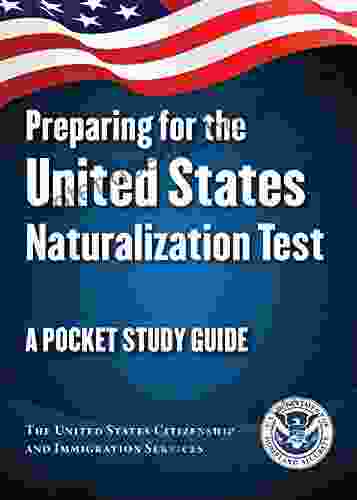
 Mario Vargas Llosa
Mario Vargas LlosaUnlocking Academic Success: A Comprehensive Guide to...
In the ever-challenging academic...

 Gabriel Blair
Gabriel BlairMake $000 Per Month Selling Your YouTube Freelancing...
Are you looking for a...
4.1 out of 5
| Language | : | English |
| File size | : | 937 KB |
| Text-to-Speech | : | Enabled |
| Screen Reader | : | Supported |
| Enhanced typesetting | : | Enabled |
| Word Wise | : | Enabled |
| Print length | : | 282 pages |
| Paperback | : | 1 pages |
| Item Weight | : | 1.25 pounds |
| Dimensions | : | 8.51 x 0.5 x 11.04 inches |


